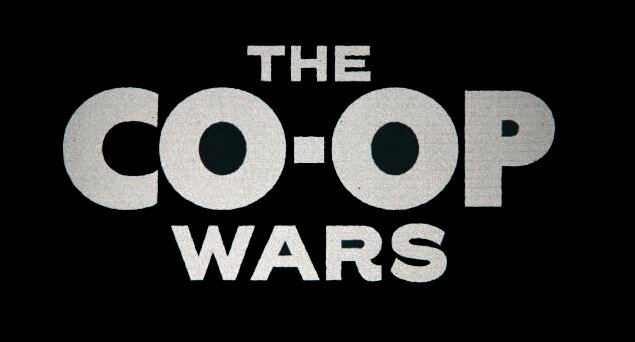Baby Boomer Dick Rahders, an attorney who represented the Policy Review Board in the Peoples Warehouse dispute in 1976, and Gen Xer Journey Gosselin, entrepreneur behind the CityFoodStudio.
A couple of Washington, D.C., policy-writers developed new careers for themselves in the early 1990s when they published a book outlining a repeating cycle of American history and generational archetypes since 1584 (GENERATIONS: The History of America’s Future). William Strauss and Neil Howe argued that there are four generational archetypes that recur based on the cycle of history they are born into. In true form for their generation (according to their own theory), the authors went on to turn this pop-sociology approach into a consulting business, essentially spinning gold from their pseudo-scientific, “visionary” musings.
It’s quite fun, and semi-informative - those of us raised by hippies might liken it to astrology. Strauss and Howe call the Baby Boomers (nearly all the people involved in the 1970s co-op start-ups) a “Prophet generation.”
According to Life Course, Prophets are born at the end of a Crisis, “grow up as the increasingly indulged children of this post-crisis era, come of age as narcissistic young crusaders of a spiritual awakening, cultivate principle as moralistic midlifers, and emerge as wise elders guiding another historical crisis.” Many of those involved in the co-op movement, and those attracted to the militant ideal of the CO, could certainly be described as young crusaders, although we’d say every generation has its narcissists.
According to this theory, a Prophet generation valorizes ideals, and is endowed with vision and values. According to people’s lived historical experience, this was a generation living under a new kind of threat - not the totalizing threat to national identity of a World War, but the threat of betrayal by their own government, which for some turned out to be a matter of life and death, and for others shook their beliefs to their foundations.
Flash forward to our current youth crop: the Millennials. (And no, none of the filmmakers of Radical Roots are Millennials.) Strauss and Howe identify these kids (born in the mid-’80s to mid-2000s) as a Hero generation. Heroes are born during what the theory calls an “Unravelling” - prelude to a Crisis, and following the Awakening during which the Prophet generation came of age. According to Life Course, Heroes “come of age as the heroic young team-workers of a historical crisis.” Like the Hero generation before them (the GI Generation), the Millennials will mature into “vigorous and rational institution-builders,” and probably fall prey to some hubris as “energetic mid-lifers.” Millennials are often called the first digital natives, though they face their own challenges in this recession - their generation has the highest unemployment rates combined with the most crippling student-loan debt burden ever. They face quite a totalizing threat in the form of climate change and economic collapse. And they don’t really drink or smoke much!
Where Boomers engaged in values and ideals, Millennials embrace community and technology, often the intersection of both. It’s been interesting to see some of this play out in our interviews with co-op founders and the new generation of food justice activists. And some of it doesn’t play out, because it’s just rampant generalization. As we noted above, pretty fun, kinda informative, not very scientific.
But that could just be our Nomad generation cynicism showing. ;)
BOOMER VS. MILLENNIAL: SUPPORT RADICAL ROOTS TODAY TO FIND OUT WHO WINS THE GRUDGE MATCH!

